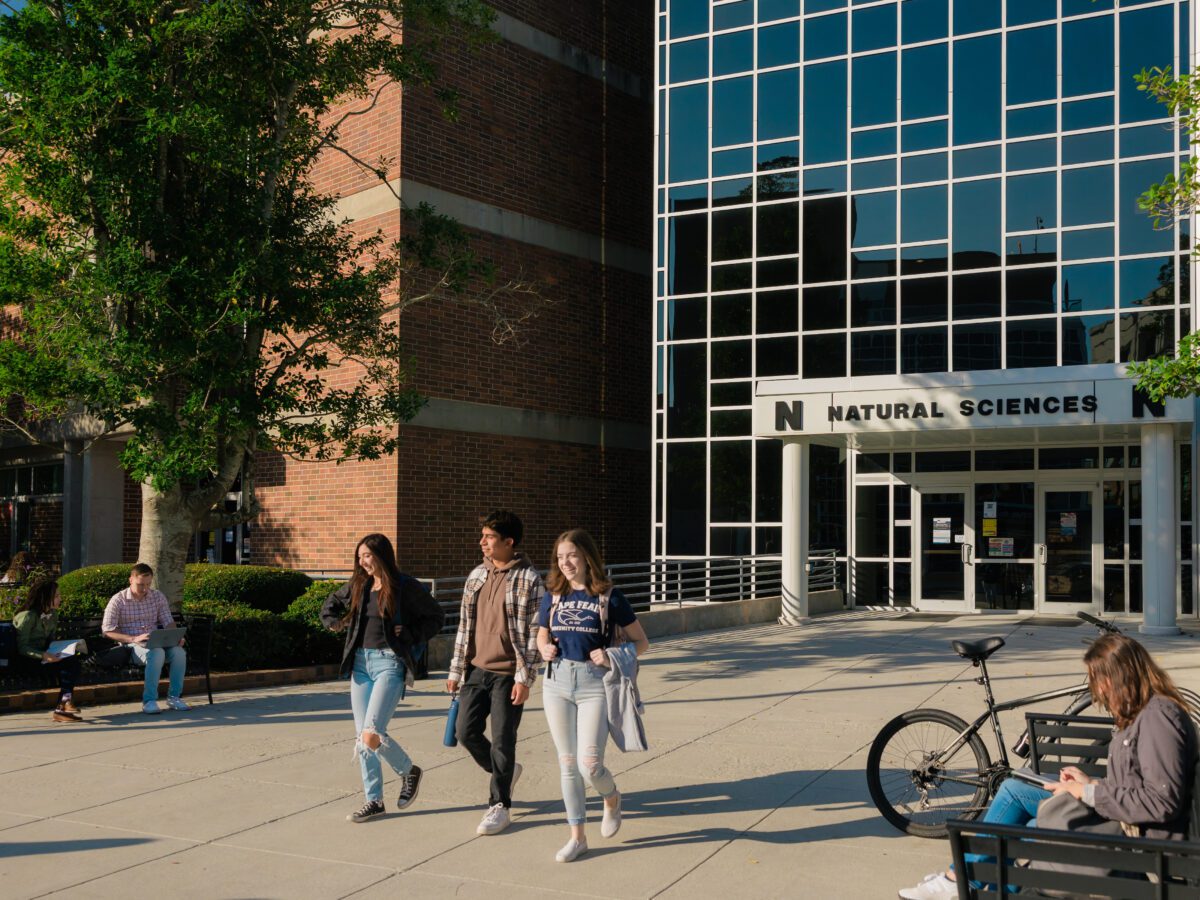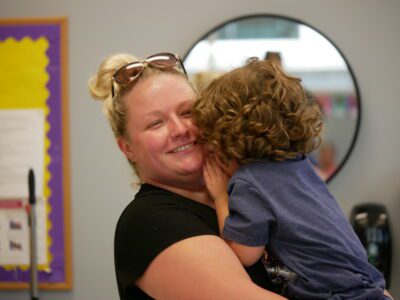
|
|
Many community college students begin their studies hoping to complete their programs in two years or less. However, students often face challenges that make it difficult to stay on track. Financial limitations, child care responsibilities, and transportation difficulties frequently cause students to take fewer classes or drop out. They must make tough decisions, choosing between essentials like food and rent over their education. Cape Fear Community College is committed to exploring unconventional approaches and exploring innovative solutions to ensure education is accessible to every member of our community. Through partnerships within existing agencies and businesses in the region, we’re actively working to break down barriers that sometimes hinder educational access.
Drop-in child care
One of the primary challenges voiced by our students revolves around the availability of affordable and dependable child care. In August 2023, Cape Fear Community College announced a no-cost, drop-in child care center accessible to all enrolled students. Initially, the center accommodated up to 20 children at a time, ages two to 12, for up to four hours. The concept was successful, and in January 2024, CFCC’s child care center was relocated to a larger area. The drop-in child care center can now serve up to 40 children at a time, ranging from six months to 12 years old. CFCC offers this service free to our students through the assistance of grants from private donors, as well as the New Hanover Community Endowment.
Laura Munoz-Vasquez is a current CFCC student. She has two children, a three-year-old and five-month-old. “The drop-in child care center is a lifesaver for my family. I take online classes and can complete them because of this program. My son loves all the teachers and being there daily with his friends. We really enjoy the artwork he brings home and are so appreciative of the center.”
Transportation partnership
Transportation also remains a significant issue for students in our community. To tackle this obstacle, CFCC partnered with WAVE Transit, the primary public transportation service in Wilmington’s metropolitan area. Beginning this Spring 2024 semester, CFCC initiated a pilot program to offer a limited supply of 31-day bus passes to currently enrolled students. According to students’ feedback, they are utilizing passes for varied reasons. Some rely on them temporarily when their vehicle is being repaired or their usual rides are unavailable. Others see them as a permanent solution for commuting between their homes and campus for classes.
Bryson Lyons, a current CFCC student, has used the pass almost daily to commute to CFCC’s downtown campus. “The bus pass has made a significant difference in my life. Previously, I purchased bus tickets or used Uber, which proved expensive. With the bus pass, I save money and can spend more time on campus, participate in clubs, and concentrate on improving my grades.”
Year-round scholarships
While we haven’t revolutionized the financial aid process, we’ve implemented significant improvements to serve our students better. Starting in March 2024, CFCC will shift to a year-round scholarship application cycle instead of only opening applications at the beginning of each semester. We understand that students face unexpected challenges that can impact their financial circumstances and, consequently, their ability to continue the coursework. These kinds of interruptions don’t happen on a set schedule. We are focused on rethinking our processes to provide accessible education and give students the support they need to stay enrolled. Under the new year-round scholarship application process, students will only need to apply for a scholarship once per academic year, and we’ll assess and grant scholarships every month.
We also recognize that some students may face short-term financial challenges, and we want to ensure emergency funding is available to support them. We know that our students are just one flat tire away from having to drop out. We hope these proactive measures will help students when they need it most, so they can rebound quickly and continue their studies. Any student demonstrating financial need can apply for emergency assistance, with awards usually up to $1,000. This support can cover various expenses, such as unexpected car repairs, gas, rent, or any other circumstances that might jeopardize their ability to remain in school.
Including all students
Students are our top priority, driving every initiative we undertake. Tackling critical issues like affordable child care and dependable transportation directly impacts their educational journey, making it possible for them to pursue their academic and professional aspirations. CFCC continues to explore options to continue to help students. As we continue expanding partnerships within the community and exploring innovative solutions, we stay committed to inclusivity and ensuring every community member has access to high-quality education.
Recommended reading




